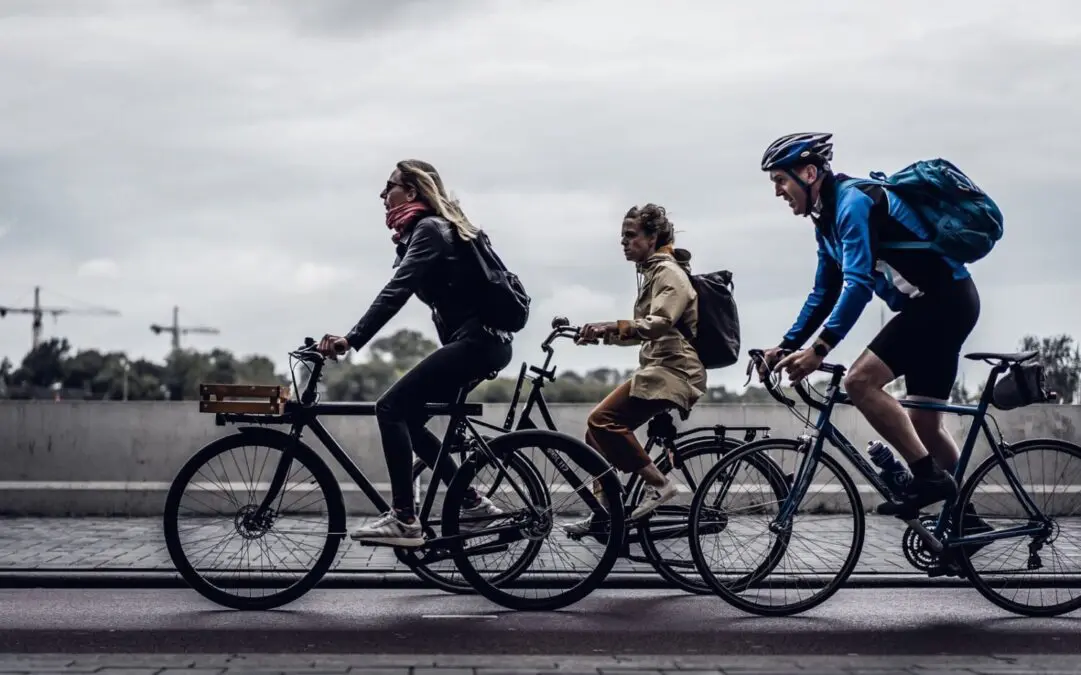Multilateral cooperation on fostering healthy and sustainable transport in the WHO European Region has just passed a major milestone: 20 years ago WHO/Europe, the United Nations Economic Commission for Europe (UNECE) and Member States from across the pan-European region* established the Transport, Health and Environment Pan-European Programme (THE PEP).
To mark the occasion, the Government of France organized and hosted an event within the context of the French Presidency of the Council of the European Union. WHO/Europe took part in the event, providing insights on active mobility during the COVID-19 pandemic and offering recommendations on how urban areas could build on cycling or walking to work to improve mobility as well as on reducing the spread of COVID-19.
Speaking at the event, Francesca Racioppi, Head of the WHO European Centre for Environment and Health in Bonn, Germany, said: “It is really remarkable for a policy platform of such a voluntary nature to celebrate its 20th anniversary: this is a clear indication that Member States continue to value the benefits of working in partnership across sectoral boundaries on concrete projects that support the transition towards healthier, safer and greener transport.”
THE PEP is a unique intergovernmental, cross-sectoral policy platform for policy-makers and stakeholders of the countries of the pan-European region for accelerating the transformation towards clean, safe and healthy mobility and net-zero-emission transport. It is driven and guided by its Steering Committee of Member States and jointly serviced by UNECE and the WHO Regional Office for Europe.
Clean and safe transport
THE PEP has had some notable successes recently. For example, in May last year, Member States adopted the Vienna Declaration on “Building forward better by transforming to new, clean, safe, healthy and inclusive mobility and transport,” which included the first-ever Pan-European Master Plan for Cycling Promotion.
The Master Plan called for doubling cycling in the region by 2030 using a range of measures that include reallocating space for cycling and walking, improving active mobility infrastructure, developing national cycling policies, strategies and plans as well as integrating cycling into health policies, infrastructure and land-use planning.
Long-term impact
Furthermore, the COVID-19 pandemic has highlighted the importance of active mobility for good public health. Strengthening mobility also increases resilience to crises and disasters. European Member States are working on post-pandemic recovery packages that should focus on innovative approaches. The idea is to expanding clean, safe, healthy and inclusive mobility and transport. This include by reducing car dependency, improving rail traffic and public transport, and significantly increasing safe walking and cycling.
This 20th anniversary is an opportunity to acknowledge and celebrate the successes and progress made by the pan-European programme, but also to look forward to forthcoming opportunities for development and the next Ministerial Conference to be hosted by the Russian Federation in Moscow in 2025.
United Action for Better Health in Europe
Ensuring better health and well-being is a key pillar of both WHO’s Thirteenth General Programme of Work and the European Programme of Work, 2020–2025 – “United Action for Better Health in Europe”. Environments that enable healthy behaviours, including strengthening urban areas, are key to this vision, with THE PEP forming an important part of the work on environment and health.
- The pan-European region consists of the 56 Member States of UNECE. And includes all 53 Member States of the WHO European Region.







